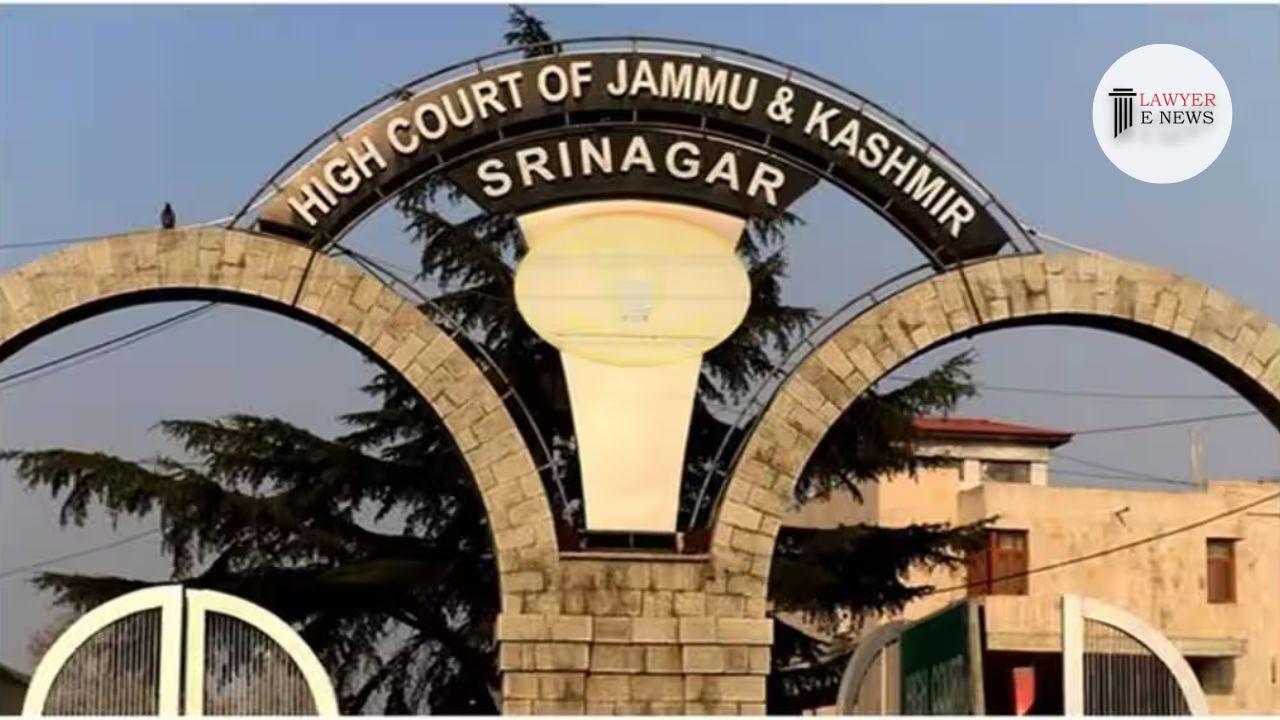-
by Admin
15 February 2026 2:16 AM



In a landmark judgment, the High Court of Jammu & Kashmir and Ladakh at Jammu upheld the preventive detention of Swarna Devi under the Jammu and Kashmir Public Safety Act, 1978. The bench, led by Justice Sanjeev Kumar, emphasized the necessity of preventive detention to maintain public order, given the petitioner’s extensive involvement in criminal activities, including pushing young girls into forced prostitution.
The habeas corpus petition was filed by Swarna Devi challenging her detention under Section 8(1)(a) of the Jammu and Kashmir Public Safety Act, 1978. The petitioner was detained by an order dated 1st October 2023, issued by the District Magistrate, Jammu, citing her habitual criminal activities as a significant threat to public order. Swarna Devi was accused of multiple criminal activities, including forced prostitution, with six FIRs registered against her from 2016 to 2023.
Distinction Between Law and Order and Public Order: Justice Sanjeev Kumar underscored the distinction between law and order and public order. Referring to the Supreme Court’s judgment in Pushkar Mukharjee v. State of West Bengal, he noted, “A mere disturbance of law and order leading to disorder is not necessarily sufficient for preventive detention. However, activities that affect the community at large and disturb the even tempo of life fall under public order.”
Nature of Criminal Activities: The court highlighted that Swarna Devi’s activities, including forcing minor girls into prostitution and running a sex racket, significantly impacted the community. “The continuous criminal activities of the petitioner have created an environment of fear and insecurity among the public, especially women,” Justice Kumar stated.
Procedural Safeguards: Addressing the petitioner’s claims of procedural violations, the court found no merit. “The petitioner was provided with the grounds of detention and the dossier. There were no procedural violations,” the court affirmed.
The court extensively discussed the principles governing preventive detention under the Public Safety Act. It reiterated that preventive detention is justified when criminal activities pose a severe threat to public order. Justice Kumar remarked, “The substantive law has proved insufficient to deter the petitioner and curb her criminal activities. Hence, preventive detention was imperative to safeguard the larger public interest.”
Justice Sanjeev Kumar, in his judgment, noted, “The nature of the activities attributed to the petitioner and the manner in which these are carried out have the potential of disturbing the even tempo of public life, particularly affecting the people residing nearby.”
The dismissal of Swarna Devi’s petition underscores the judiciary’s commitment to maintaining public order in the face of severe criminal activities. By upholding the preventive detention order, the court has sent a strong message about the imperative need to curb activities that disrupt public peace and security. This judgment reinforces the legal framework supporting preventive detention in cases where substantive law proves inadequate.
Date of Decision: 30th May 2024
Swarna Devi vs. UT of Jammu & Kashmir and Ors.
